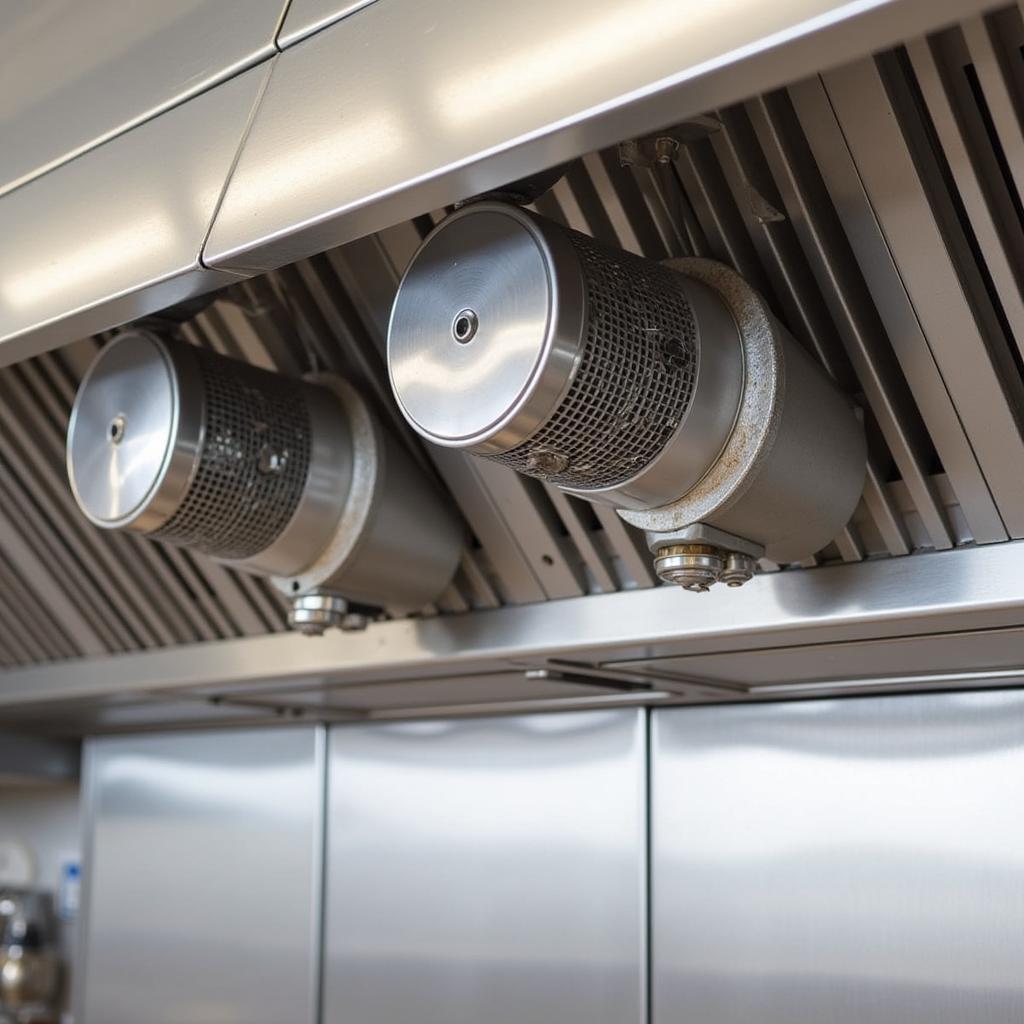Commercial kitchen exhaust fan regulations in Australia are crucial for maintaining a safe and healthy working environment. These regulations ensure proper ventilation, fire safety, and noise control, contributing to the overall well-being of staff and customers. Understanding and complying with these regulations is not just a legal obligation but also a vital step towards running a successful and responsible food business.
Navigating Australian Exhaust Fan Regulations for Commercial Kitchens
Australia’s commercial kitchen exhaust fan regulations are primarily governed by state and territory legislation, as well as Australian Standards. This can make navigating the specific requirements a bit complex, but it’s essential to ensure your kitchen is compliant. Key aspects include airflow rates, fire suppression systems, and noise levels. Failing to meet these standards can result in fines, closures, and even legal action.
Understanding Airflow Requirements
Adequate airflow is critical for removing grease, smoke, and heat from a commercial kitchen. Regulations stipulate specific airflow rates based on the size and type of cooking equipment used. Calculating the correct airflow requires considering factors like the cooking surface area, the type of fuel used, and the overall kitchen layout.
Fire Suppression Systems and Your Exhaust Fan
Fire safety is paramount in commercial kitchens, and exhaust fans play a crucial role in fire prevention. Regulations often mandate the integration of fire suppression systems within the exhaust hood and ductwork. These systems are designed to automatically extinguish grease fires, preventing them from spreading throughout the kitchen and building. Regular inspection and maintenance of these systems are essential for ensuring their effectiveness.
Keeping the Noise Down: Noise Level Regulations
Exhaust fans can generate significant noise, which can be disruptive to both kitchen staff and surrounding businesses or residences. Regulations often specify permissible noise levels for exhaust fans, both inside and outside the building. Choosing the right fan and implementing appropriate noise control measures, such as silencers, can help ensure compliance.
 Commercial Kitchen Exhaust Fan with Noise Control Measures
Commercial Kitchen Exhaust Fan with Noise Control Measures
Key Regulations and Standards
Several key regulations and standards govern commercial kitchen exhaust fan installations in Australia. These include:
- AS 1668.1: This standard covers the design and installation of air conditioning and ventilation systems in buildings.
- AS 1668.2: This standard addresses the mechanical ventilation in buildings.
- Building Code of Australia (BCA): The BCA outlines minimum requirements for building safety and fire protection, including provisions for kitchen exhaust systems.
- State and Territory Regulations: Each state and territory has its own specific regulations regarding kitchen exhaust systems, which must be adhered to.
“Understanding the specific requirements in your area is crucial for compliance and ensuring the safety of your staff and customers,” says John Smith, a Certified Fire Safety Consultant with over 20 years of experience in the industry.
Regular Inspections and Maintenance
Regular inspections and maintenance of your exhaust system are essential not only for compliance but also for optimal performance and longevity. A qualified technician should inspect the system at least annually, checking for issues like grease buildup, fan damage, and proper functioning of fire suppression systems.
Conclusion
Commercial kitchen exhaust fan regulations in Australia are designed to protect the health and safety of everyone in and around your establishment. By understanding and adhering to these regulations, you can create a safe, efficient, and compliant kitchen environment. Following these guidelines will ensure your business operates smoothly and minimizes the risk of penalties or closures.
FAQ
- What are the main regulations governing commercial kitchen exhaust fans in Australia? Australian Standards (AS 1668.1 & AS 1668.2), the Building Code of Australia (BCA), and state and territory specific regulations.
- How often should my exhaust system be inspected? At least annually by a qualified technician.
- Why are noise level regulations important? To minimize disruption to both kitchen staff and the surrounding environment.
- What are the consequences of non-compliance? Fines, closures, and potential legal action.
- Where can I find more information on specific regulations in my state? Contact your local council or relevant regulatory authority.
- What is the importance of fire suppression systems in exhaust hoods? To prevent grease fires from spreading.
- How do I calculate the required airflow for my kitchen? Consider factors like cooking surface area, fuel type, and kitchen layout, often requiring a professional assessment.
Need further assistance? Contact us at Phone Number: 0903426737, Email: fansbongda@gmail.com Or visit us at: Group 9, Area 6, Gieng Day Ward, Ha Long City, Gieng Day, Ha Long, Quang Ninh, Vietnam. We have a 24/7 customer support team.


